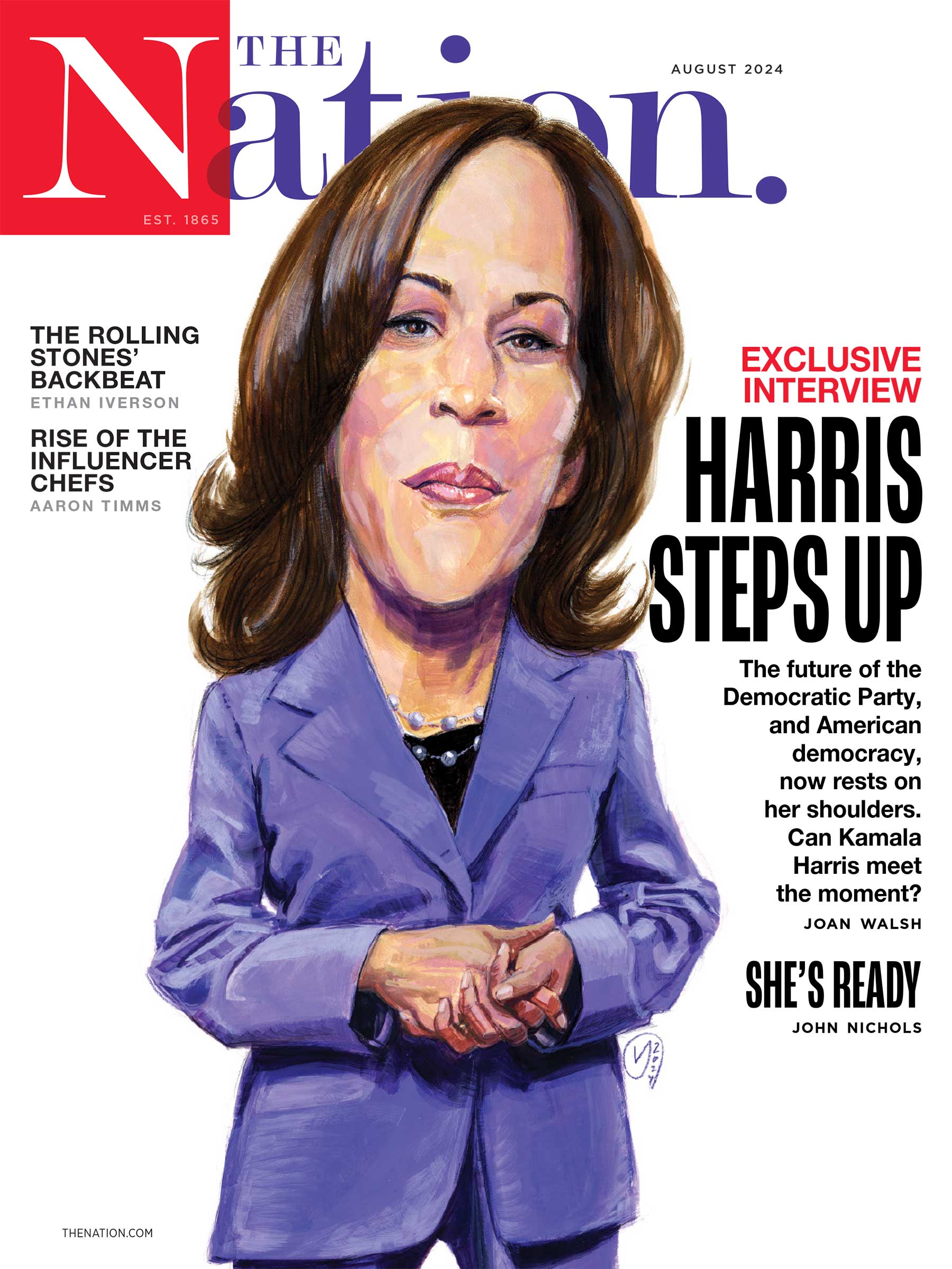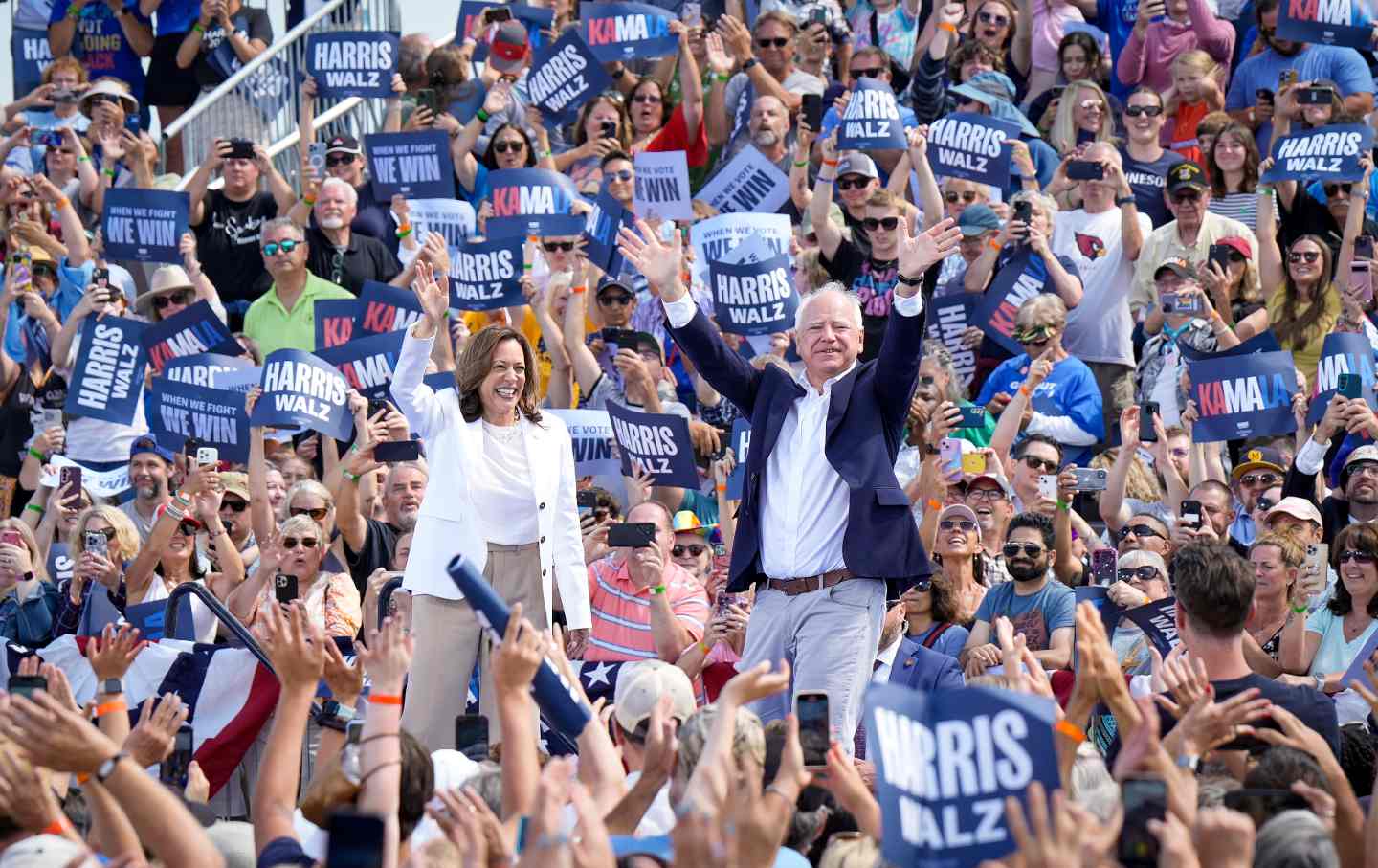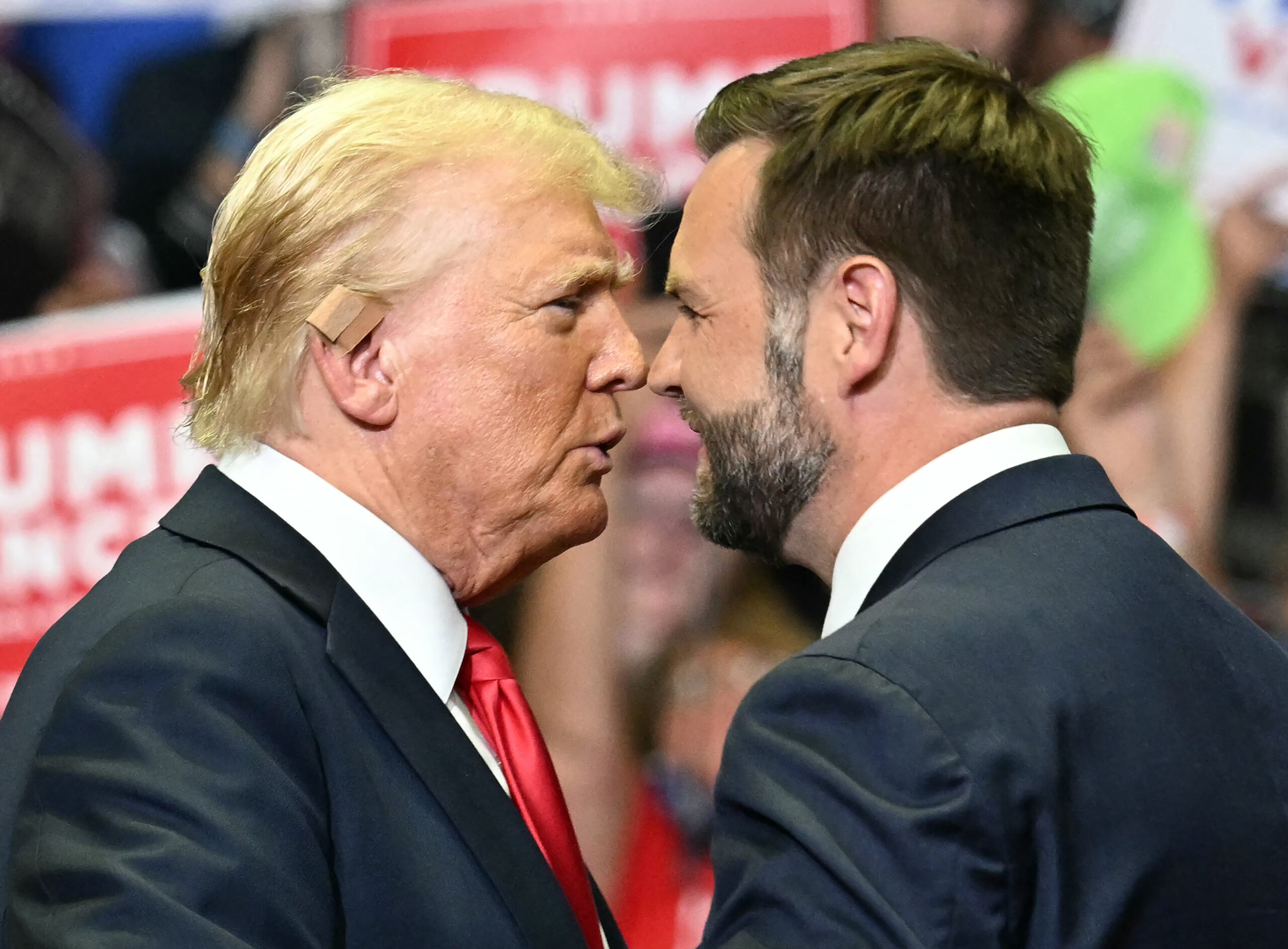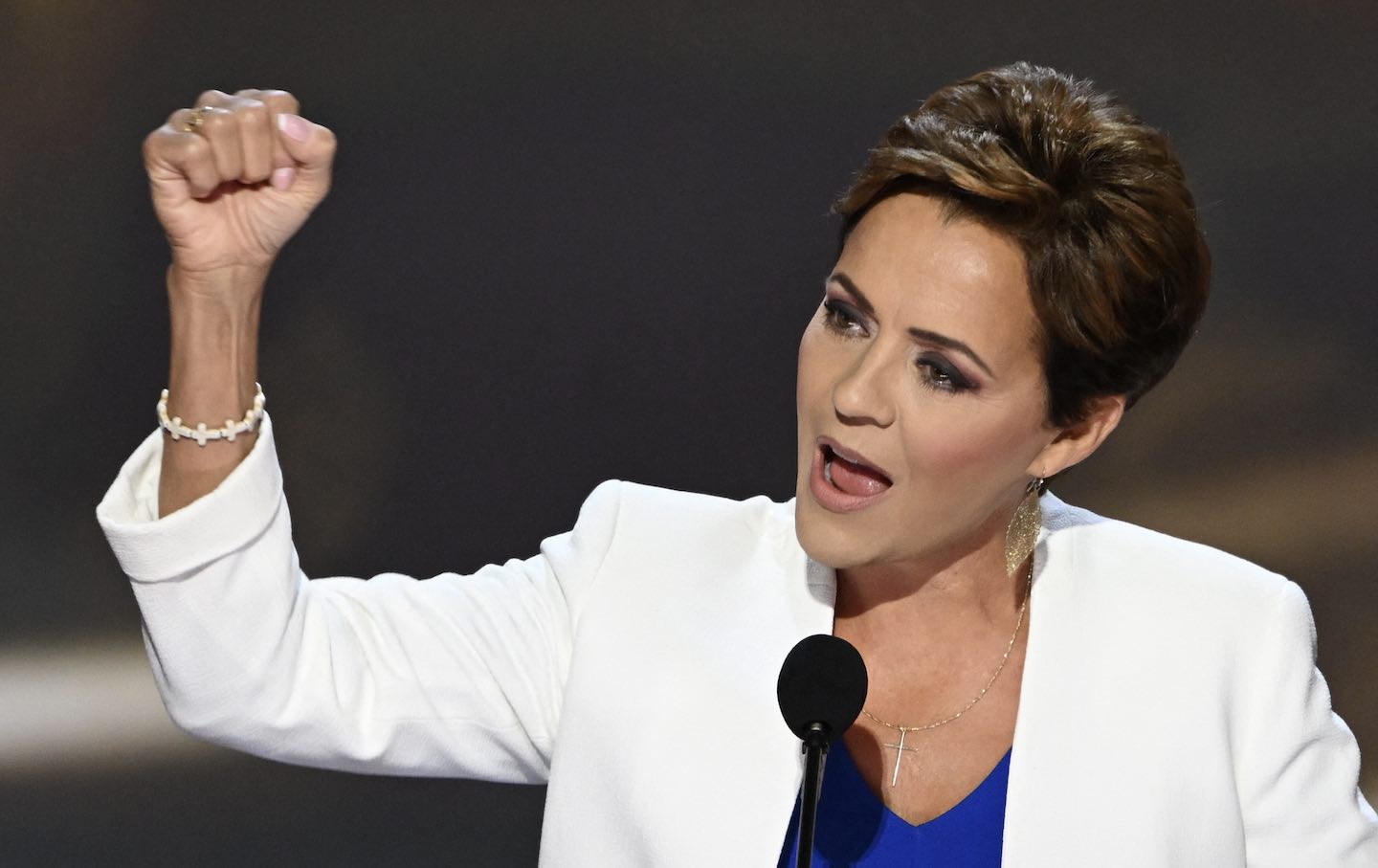Politics
/
August 8, 2024
Kamala Harris must move from words to deeds to stop Israel’s war crimes.
Kamala Harris had many reasons not to make Pennsylvania Governor Josh Shapiro her vice-presidential running mate. From his views on education to his handling of sexual harassment cases, Shapiro has baggage, and Harris’s team was reportedly worried that he would be dissatisfied serving as her loyal deputy. When the two met for an interview, their chemistry was apparently less than stellar.
But one of the reasons Shapiro didn’t make the cut was undoubtedly the controversy around his views on Israel and Palestine in general and the genocide in Gaza in particular. Blocking his selection became a top goal for progressives, and Harris’s team knew that picking him would send a message that she was happy to ignore the pro-Palestinian movement in her party. As a Democratic strategist close to the Harris camp told NBC News on Tuesday, “Bringing Gaza back into the foreground would just be awful all the way around. Nobody wanted to return to that.”
By choosing Minnesota Governor Tim Walz, Harris has avoided this kind of intraparty rift. Progressives, who had been hyping Walz for days leading up to his unveiling, are thrilled.
Current Issue

The Walz pick is a win for the Democratic left. Shapiro was the darling of the Bill Kristol–Joe Scarborough wing of the party for a reason, and his failure is a testament to the strength of the forces arrayed against him. Walz’s selection is also a sign that, at the very least, Harris sees a political benefit in not overtly antagonizing the movement for Palestine—a calculation she would almost certainly have felt no need to make before the last 10 months of activism around Gaza.
But look at that NBC quote again: “Bringing Gaza back into the foreground would just be awful.” In other words, Gaza was once in the foreground, but—thanks, presumably, to both Joe Biden’s exit from the 2024 race and Walz’s elevation over Shapiro—it has receded as an issue, leaving Harris with a much more united front going into November.
The quote highlights a risk from the wave of euphoria washing over parts of the left: that it will accelerate Gaza’s fade from the political agenda. This fading has occurred even though the genocide shows no signs of slowing and, just as crucially, even as Harris has provided no signs that she intends to meaningfully depart from Joe Biden’s approach to Gaza.
There has been discussion about Harris’s supposedly different “tone” when it comes to Gaza. But, as I have written elsewhere, this idea barely squares with the facts. Harris has occasionally sounded more critical notes than Biden, but if you look at the recent statements that the two have made about Gaza, you will find that the sentiments, and even many of the words, are identical. Both Biden and Harris talk about the “suffering” of Palestinians. Both have said that they want a ceasefire in Gaza. The notion of some deep split between their language is more fantasy than reality.
Plus, a focus on Harris’s words distracts from the more important truth: that she has sent no signal that she would do anything differently than Biden on Gaza. She has never objected to the continued shipment of weapons to Israel, a position confirmed by her national security adviser Phil Gordon on Thursday morning. She has never hinted that she would end the policy of protecting Israel at the United Nations. Right now, the idea that she would respect an international arrest warrant against Benjamin Netanyahu, or do anything significant to stop settlement expansion in the West Bank, is laughable.
It’s also reckless to rejoice too much in Harris’s choice of Walz when it comes to Gaza. Walz has not made Israel a political priority, and, like Harris, he’s been a bit kinder toward the Uncommitted movement than some of his peers, but there’s no reason to believe he represents any kind of significant break with the standard Democratic line on Palestine.
You might say that it’s unrealistic to expect much more from Harris and Walz—that they’re caught in the middle of a divided party and that things might change if they get into office. But people in Gaza do not have the luxury of waiting around. Israel is killing scores of Palestinians every day. Famine is rampant, and leading Israeli politicians are speaking wistfully about their desire to starve everyone in Gaza. Palestinian prisoners are recounting hideous experiences of torture and sexual assault at the hands of Israeli forces. And the Biden administration, of which Harris is still the second-most-powerful figure, is just as implicated in these atrocities today as it was yesterday.
Gazans cannot feed themselves on rhetorical tweaks. A harsher tone will not protect them from US bombs. Winks and nods won’t end the genocide. Only forceful action from the United States will. And Harris is not a tangential figure—she is the sitting vice president of the United States, and she is running to be the president.
So rather than allow Harris and Walzmania to lull us into passivity around Gaza, we should redouble our efforts to hold the US accountable for its participation in genocide. It is not acceptable to let the Biden-Harris administration carry on sending weapons to Israel unimpeded. It is not acceptable to allow Harris and Walz to skate through this campaign without, at the bare minimum, pinning them down about their specific plans to stop Israel’s war crimes. It’s not acceptable to be satisfied with a vibe shift.
In other words, the fight for Gaza and for Palestinian liberation is nowhere near over. So we must continue that fight with as much energy and resolve as possible, no matter who is on the Democratic ticket or who is in the White House. After all, as Kamala Harris might say, when we fight, we win.
Can we count on you?
In the coming election, the fate of our democracy and fundamental civil rights are on the ballot. The conservative architects of Project 2025 are scheming to institutionalize Donald Trump’s authoritarian vision across all levels of government if he should win.
We’ve already seen events that fill us with both dread and cautious optimism—throughout it all, The Nation has been a bulwark against misinformation and an advocate for bold, principled perspectives. Our dedicated writers have sat down with Kamala Harris and Bernie Sanders for interviews, unpacked the shallow right-wing populist appeals of J.D. Vance, and debated the pathway for a Democratic victory in November.
Stories like these and the one you just read are vital at this critical juncture in our country’s history. Now more than ever, we need clear-eyed and deeply reported independent journalism to make sense of the headlines and sort fact from fiction. Donate today and join our 160-year legacy of speaking truth to power and uplifting the voices of grassroots advocates.
Throughout 2024 and what is likely the defining election of our lifetimes, we need your support to continue publishing the insightful journalism you rely on.
Thank you,
The Editors of The Nation
More from The Nation

In Wisconsin, the campaign tapped into one of the most resonant parts of this country’s history—with a little help from Bon Iver.
John Nichols

The Heritage Foundation’s attempt to produce an intellectual and wonkish Trumpism turns off voters.
Jeet Heer

Arizona Democratic officials say the primary results don’t reflect “what the majority of Arizonans think.”
Sasha Abramsky


